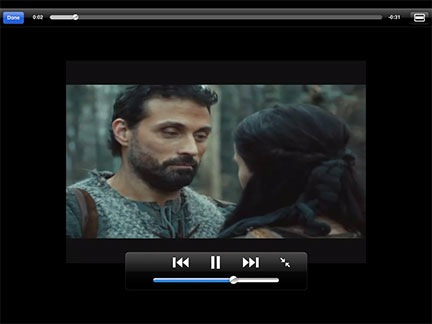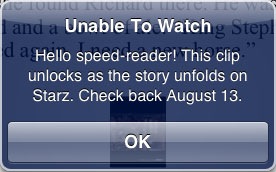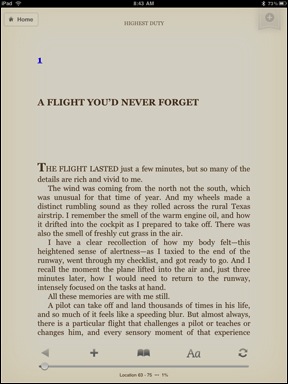The end of an era? Looks that way to me.
When Apple announced, two years ago, that it would no longer attend Macworld Expo, lots of people said the announcement was Macworld Expo’s death knell. Like some other people, I thought that opinion was a both harsh and premature.
I don’t think that anymore.
On Friday, I did a presentation as a member of the Macworld Expo Conference faculty for the first time in at least eight years. I used to speak at Macworld Expo all the time, having at least one session in San Francisco and Boston (and later, New York) and even Toronto from about 1993 through 2002 or so. Back in the early 2000s, IDG took over the show and the conference management changed. They also went off in a new direction that stressed the creative aspects of working with the Mac. I was always more of a productivity person, so I didn’t fit in.
I still went to the show once in a while, but not very often. I came a few years ago, mostly to meet with one of my publishers. But that was it.
Looking back at it, I realize that I was deep in the Mac world at Apple’s first peak in popularity. The shows — especially in San Francisco — were huge. The very biggest shows took up both exhibit halls of Moscone Conference Center. All the big vendors were there — Apple, Microsoft, Adobe, Macromedia, Claris (later FileMaker), Quark — the list goes on and on. The show floor was buzzing all day long. The noise was deafening and there was a pure adrenaline rush on first entering the exhibit hall. And the products introduced! Even my husband talks about innovations like the Video Toaster (which, ironically, I believe ran on an Amiga). I remember all of Apple’s big hardware and software releases and the software demos that were both educational and entertaining. And how could I forget the Boston show where Mac OS 8 went on sale and my first Mac OS Visual QuickStart Guide sold out?
Afterwards, the parties would start. They were amazing affairs — the Exploratorium is a good example; the party sponsors rented the entire facility, leaving us to wander around and play with the exhibits. There was headliner entertainment, too: one year was Chris Isaac at one party and Jefferson Airplane at another. There were cruises and bungee jumps at Boston Harbor. There were full food, open bar parties at the top of the Fairmont in San Francisco. As one of the B+ list speakers/authors (in those days, anyway), I’d party hop with my peers. I remember one year bouncing from one party to the next with Bob Levitus, who always managed to get into all the parties, whether he had tickets or not.
Things change. Apple took a serious downturn. Things looked bad. Then Steve Jobs came back. The original iMac breathed new life into the company. More products followed. I remember seeing hundreds of buses all over San Francisco skinned with images of five colors of iMacs. But despite Apple’s subsequent successes, Macworld Expo was never quite the same. The show began to shrink.
What I saw on the show floor this year was a shock. The show was tiny — by old standards — occupying about half of one floor at the relatively new Moscone West building. At least 80% of the items on display could be classified as accessories — mostly protective or decorative covers — for the iPad and iPhone. There were very few Macintosh items.
Macworld Expo had become iAccessoryworld Expo.
Although most of the folks I spoke to about their thoughts on this matter seemed to agree with me — some more strongly than others — the members of the Macintosh press that I met there were surprisingly upbeat about it. One of them even commented that Microsoft’s support for the show is a good sign. Support for the show? They didn’t even have a booth! Having a party for a chosen few and being one of the sponsors on another party isn’t the kind of support I’d be upbeat about.
If I had travelled to San Francisco for the sole purpose of seeing the show floor — as I know many people did in the past — I would have been sorely disappointed. Disappointed enough to demand my money back. What I wouldn’t be able to get back was the travel time and expense and the three hours of my life spent trying to understand how so many accessory developers could think there was a market for yet another version of an iPad case. Or skin. Or screen protector.
The real value in Macworld Expo was the conference sessions — now more than ever. The conference management assembled a collection of experts — some old timers like me, some younger and newer to Mac OS (and iOS, of course) — and offered a variety of interesting tracks and sessions for Mac, iPhone, and iPad users.
My session about building your iPad for business was relatively well attended — the room was about half full. I received a handful of follow-up questions and a polite round of applause at the conclusion of my talk. Several of the attendees came up to the front of the room to thank me or offer complements. It was like the old days, but on a much smaller scale.
After all, Friday’s room could have held only about 100 people when, in the past, I did sessions that packed a room that seated more than 300.
And the meeting room area at Macworld Expo used to be busier than a high school hallway between classes each time a session let out. Now only a few dozen people meandered about, shuffling from room to room.
At least these people got something worthwhile for their money.
I know these are harsh words and, as a member of the Mac community with a long Macworld Expo history, it’s hard for me to type them. The conference faculty was treated quite well, with generously filled swag bags, a comfortable place to rest between sessions, and both breakfast and lunch every day. The session rooms were relatively well equipped. It’s hard to share negative opinions about Macworld Expo when IDG staff responsible for the conference part of the show treated me well. But if this blog post precludes me from ever speaking again at a Macworld Expo, so be it. I don’t sugar coat anything and I’m certainly not going to sugar coat this.
While I realize that the old days are long gone, I think that if IDG can’t do better than what I experienced this past week in San Francisco, they should throw in the towel on Macworld Expo and concentrate on better ways to share valuable information with Mac OS and iOS users.

 When it’s an app.
When it’s an app. A “Character Tree.” This feature is supposed to help you understand the relationship between characters. I found it nearly impossible to navigate and parts of it seemed to be locked out. It was more of a source of frustration than information. I still can’t figure out why some characters have flashing halos.
A “Character Tree.” This feature is supposed to help you understand the relationship between characters. I found it nearly impossible to navigate and parts of it seemed to be locked out. It was more of a source of frustration than information. I still can’t figure out why some characters have flashing halos. I think the ultimate indicator that this is a poorly designed app is the dialog that appears every single time you open the app. Illustrated here, it includes a Don’t Show button. I tapped it every single time, but the damn dialog continued to appear.
I think the ultimate indicator that this is a poorly designed app is the dialog that appears every single time you open the app. Illustrated here, it includes a Don’t Show button. I tapped it every single time, but the damn dialog continued to appear. The clip usually did not match the text. The screenplay is apparently not a faithful adaptation, so dialog, characters, and scenes are different. Watching these clips while reading the book is like reading a book and watching a movie roughly based on it at the same time. Not a very rewarding experience.
The clip usually did not match the text. The screenplay is apparently not a faithful adaptation, so dialog, characters, and scenes are different. Watching these clips while reading the book is like reading a book and watching a movie roughly based on it at the same time. Not a very rewarding experience. The clip would not display until it had aired on Starz! This zapped me early on. After reading a passage that described the cathedral under construction, I was pleased to see a video icon, hoping to be able to visualize the rather complex description. Instead, a dialog box (see image) told me that “speed-readers” had to wait until that clip aired more than a week later! My surprise quickly turned to anger when I realized I’d been sold a marketing tool for Starz.
The clip would not display until it had aired on Starz! This zapped me early on. After reading a passage that described the cathedral under construction, I was pleased to see a video icon, hoping to be able to visualize the rather complex description. Instead, a dialog box (see image) told me that “speed-readers” had to wait until that clip aired more than a week later! My surprise quickly turned to anger when I realized I’d been sold a marketing tool for Starz.

 Last week, while I was away in Ventura, CA, recording a revision to my Twitter course for
Last week, while I was away in Ventura, CA, recording a revision to my Twitter course for  Apple Case. Frankly, I can’t understand why so many third party vendors are creating and selling cases for this device. The plain black case Apple offers (at a whopping $49) is excellent. It provides the protection you need for your iPad investment without making a slim, portable device unnecessarily bulky. And since the cover can be used to prop up the iPad at an angle in landscape view, it does double duty. Now that I’ve slipped my iPad into it, I can’t imagine the need for anything else.
Apple Case. Frankly, I can’t understand why so many third party vendors are creating and selling cases for this device. The plain black case Apple offers (at a whopping $49) is excellent. It provides the protection you need for your iPad investment without making a slim, portable device unnecessarily bulky. And since the cover can be used to prop up the iPad at an angle in landscape view, it does double duty. Now that I’ve slipped my iPad into it, I can’t imagine the need for anything else. Kindle vs. iBooks. I think Apple missed the boat on this one. The Kindle app (see screenshot) has iBooks beat. Why? Because the Kindle app is available for iPad, iPhone, BlackBerry, Mac OS, Windows, etc. iBooks is available on iPad. So I go to Amazon.com and I buy a book. That book is automatically available on all of my registered devices. My bookmarks and last page read are automatically synchronized among them. So I can read a book in bed on my iPad and then, the next day, when I’m stuck waiting in line at the Motor Vehicle office, I can whip out my BlackBerry and continue reading where I left off. Theoretically, I can also register my husband’s Windows laptop so he can read my books, too. The only thing that would make this better is the ability to loan books to other Amazon.com account holders like Barnes and Noble’s Nook. (By the way, I named my iPad “Not Nook” because I cancelled my Nook order in January, expecting to buy an iPad instead. B&N dropped the ball when they couldn’t fulfill orders in a timely manner. Not having a problem doing that anymore, I bet.)
Kindle vs. iBooks. I think Apple missed the boat on this one. The Kindle app (see screenshot) has iBooks beat. Why? Because the Kindle app is available for iPad, iPhone, BlackBerry, Mac OS, Windows, etc. iBooks is available on iPad. So I go to Amazon.com and I buy a book. That book is automatically available on all of my registered devices. My bookmarks and last page read are automatically synchronized among them. So I can read a book in bed on my iPad and then, the next day, when I’m stuck waiting in line at the Motor Vehicle office, I can whip out my BlackBerry and continue reading where I left off. Theoretically, I can also register my husband’s Windows laptop so he can read my books, too. The only thing that would make this better is the ability to loan books to other Amazon.com account holders like Barnes and Noble’s Nook. (By the way, I named my iPad “Not Nook” because I cancelled my Nook order in January, expecting to buy an iPad instead. B&N dropped the ball when they couldn’t fulfill orders in a timely manner. Not having a problem doing that anymore, I bet.) Flash. Okay, so the iPad doesn’t support Flash. I don’t care very much because I hate Flash. I hate the way it’s overused on the Web, I hate the way it takes so damn long to load on the shitty slow Internet connection in my Wickenburg office, I hate the way when it finally loads that it wastes time and bandwidth with idiotic content. Take, for example, the crappy design of
Flash. Okay, so the iPad doesn’t support Flash. I don’t care very much because I hate Flash. I hate the way it’s overused on the Web, I hate the way it takes so damn long to load on the shitty slow Internet connection in my Wickenburg office, I hate the way when it finally loads that it wastes time and bandwidth with idiotic content. Take, for example, the crappy design of 
